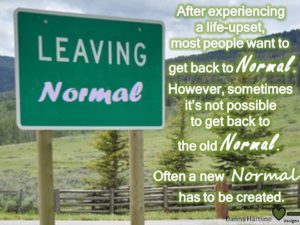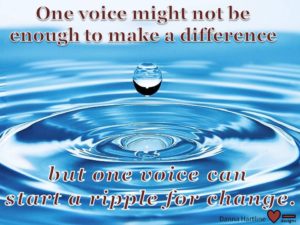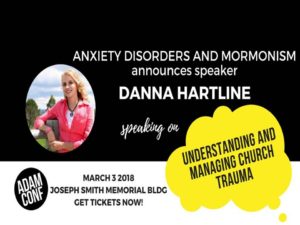The Deep and Unspoken Church Ache
I often sit in church meetings that teach about church growth and fellowship. In general, they are uplifting, pat-yourself-on-the-back lessons—very encouraging and good. But for some reason I cannot ever fully buy into what I am hearing. I want to—and I do to a point because I do see so much good that is happening in the Church.
 But in the same breath, it seems a little off to think that all is well in Zion and that everyone is as happy and thriving as well as seems to be claimed. I know there are success stories of conversion going on and I am so grateful that those people are being reached and are finding such a great measure of fellowship. I am excited about each baptism and each returning-to-activity member I witness. I see so many that are doing very well and I awe over them and so appreciate the connection and love they are feeling by church members. I like to think I’ve even played a small part in some of that growth and fellowship. But even in these successes, I know of too many counter stories to just settle in and feel like the experiences being shared are simply commonplace and universal. While I sit in these lessons, I wonder how many people in those very rooms where such exclamations of success and satisfaction are being conveyed could vouch for the opposite experiences. At times over the years, I’ve looked around and have known of several of the people in attendance that just might have contrary feelings from those being expressed. Yet, they don’t speak up. They don’t say anything contrary even though I’ve known personally of some of their struggles. In every lesson on this topic, each time all of them sit in silence. But why? Why do they not speak? I can’t say for sure but have you ever been in a room where sentiments were being conveyed that didn’t reflect your personal struggles or feelings and so you just kind of cowered down, thinking, “I must be the only one. Dang! What’s wrong with me?” So rather than speaking up and risking the “gloomy, Downer-Debbie problem child” label, you internalize the struggle, convinced that it’s all you. You conclude you are the whole of the conflict and are solely to blame for your struggle. As the lesson continues, viewpoints will even likely be expressed that confirm your shoddy outlook and feelings: “If you aren’t experiencing happiness in church, it’s YOUR problem. It’s YOUR responsibility to reach out and fellowship. You get what you put into it. You are CHOOSING to be unhappy. Remember, it’s your choice to be offended.”
But in the same breath, it seems a little off to think that all is well in Zion and that everyone is as happy and thriving as well as seems to be claimed. I know there are success stories of conversion going on and I am so grateful that those people are being reached and are finding such a great measure of fellowship. I am excited about each baptism and each returning-to-activity member I witness. I see so many that are doing very well and I awe over them and so appreciate the connection and love they are feeling by church members. I like to think I’ve even played a small part in some of that growth and fellowship. But even in these successes, I know of too many counter stories to just settle in and feel like the experiences being shared are simply commonplace and universal. While I sit in these lessons, I wonder how many people in those very rooms where such exclamations of success and satisfaction are being conveyed could vouch for the opposite experiences. At times over the years, I’ve looked around and have known of several of the people in attendance that just might have contrary feelings from those being expressed. Yet, they don’t speak up. They don’t say anything contrary even though I’ve known personally of some of their struggles. In every lesson on this topic, each time all of them sit in silence. But why? Why do they not speak? I can’t say for sure but have you ever been in a room where sentiments were being conveyed that didn’t reflect your personal struggles or feelings and so you just kind of cowered down, thinking, “I must be the only one. Dang! What’s wrong with me?” So rather than speaking up and risking the “gloomy, Downer-Debbie problem child” label, you internalize the struggle, convinced that it’s all you. You conclude you are the whole of the conflict and are solely to blame for your struggle. As the lesson continues, viewpoints will even likely be expressed that confirm your shoddy outlook and feelings: “If you aren’t experiencing happiness in church, it’s YOUR problem. It’s YOUR responsibility to reach out and fellowship. You get what you put into it. You are CHOOSING to be unhappy. Remember, it’s your choice to be offended.”
And it’s true, right? Yes. But maybe no. Perhaps another angle needs to be considered for just a minute before claiming we’ve got everyone’s individual church struggle solved in one sweeping, conclusive statement.
…First, however, I must acknowledge that I know I just might be causing some blood to boil at this point. I know I have likely completely turned many of the faithful members off. But please stay with me a little longer. I really am not trying to hinder growth and fellowship but ENCOURAGE it. But there is more we need to be seeing from those whose voices we just might not be hearing if we truly want to be better at fellowshipping, reaching, and retaining. So please just stay with me a little longer.
…But before we delve into what I see as much of the problem here, I want us to expand our thoughts beyond those attending church and consider a whole different group. It is crucial that we think of this group before we proceed. They are a vital part of the picture. I want you to think of the countless inactives on ward lists who are far from church walls to even hear of the praise going on about how well church members are doing in fellowshipping and acceptance. At least in my ward, the inactive list far outnumbers those that attend. (And I’d wager your ward list isn’t much different.) But what would be THEIR stories of how well their ward is doing in the reach-out, acceptance, fellowship, and care department? I don’t know all the stories, of course, but I know many. Perhaps like you, I have gotten to know several who no longer attend and most of their stories follow a familiar pattern of feeling like they don’t fit in, that they don’t matter, that there’s no place for them, that they are a sore thumb. I’ve also conducted two surveys on this subject and have received feedback from nearly 5000 people. And what I’m hearing and seeing is that the claims I hear on Sundays just aren’t adding up to the data. Truly and gratefully, there are many that are so very happy and are finding a great deal of love and acceptance at church but there are just as many, if not more, who are not. Do we care about them? Do we truly want to hear their voices? And what about those who have left the church entirely? Have you heard their voices? Do you know their pain and struggle? Or do you think because they have left they are no longer our concern? Do we simply turn our backs on them?
To begin this discussion let’s get back to offense.
Oh, offense. Offense—a word that I have to breathe through so I don’t get  offended by the very word. When the word is brought up (and it seems to always be there in these discussions), I really try to listen open-mindedly to what is being said because I know when I hear that word I will likely be the next to speak up. That word just has that kind of effect on me. In the last meeting I heard offense discussed, I was somewhat pleased that the comment was a bit original and not so typical—it was about how we should just plan on being offended because it is going to happen at some point. So true. So important to know and understand. It’s so important to keep ourselves in check. But I think we miss it when we stop there. Too often it seems that when we talk about offense, it misleads us into thinking we have the right to point fingers and judge any church struggle we may witness among others through the lens of offense. So at the last meeting that offense was addressed, I raised my hand and stuck my head out. (Oh, I seem to be so good at that! And it definitely brings me a certain level of discomfort!!) But I said that it is true that there is offense. David A. Bednar has done a very good job of explaining that we choose to be offended. But offense isn’t the only level of hurt. There is also trauma and people do not CHOOSE to be traumatized. One does not choose to be robbed or assaulted or shot. And trauma must be treated differently than offense—just like a slap must be treated differently than a deep wound. I said that if there is any group of people in and out of the church that need more sensitivity and understanding, it is this group of people. This was quickly understood and recognized and the discussion turned to how to help in situations when there has obviously been a trauma–such as a death. (Aren’t Mormons great that way? You mention the need for help and they are eager to assist!) So they got it.
offended by the very word. When the word is brought up (and it seems to always be there in these discussions), I really try to listen open-mindedly to what is being said because I know when I hear that word I will likely be the next to speak up. That word just has that kind of effect on me. In the last meeting I heard offense discussed, I was somewhat pleased that the comment was a bit original and not so typical—it was about how we should just plan on being offended because it is going to happen at some point. So true. So important to know and understand. It’s so important to keep ourselves in check. But I think we miss it when we stop there. Too often it seems that when we talk about offense, it misleads us into thinking we have the right to point fingers and judge any church struggle we may witness among others through the lens of offense. So at the last meeting that offense was addressed, I raised my hand and stuck my head out. (Oh, I seem to be so good at that! And it definitely brings me a certain level of discomfort!!) But I said that it is true that there is offense. David A. Bednar has done a very good job of explaining that we choose to be offended. But offense isn’t the only level of hurt. There is also trauma and people do not CHOOSE to be traumatized. One does not choose to be robbed or assaulted or shot. And trauma must be treated differently than offense—just like a slap must be treated differently than a deep wound. I said that if there is any group of people in and out of the church that need more sensitivity and understanding, it is this group of people. This was quickly understood and recognized and the discussion turned to how to help in situations when there has obviously been a trauma–such as a death. (Aren’t Mormons great that way? You mention the need for help and they are eager to assist!) So they got it.
But they didn’t. You see, there is perhaps an even deadlier type of trauma among us. There is also invisible, unacknowledged, emotional trauma. All trauma is so very hard to deal with, for sure. Known and understood trauma—something that is physically seen that is suddenly ripped out of one’s hands—is a deep and anguishing experience, to say the least. People are not the same again after such experiences and violations. But equally traumatizing is invisible trauma.
…And yes, invisible trauma can even show its vicious tentacles at church–and it can come in so many forms…
It can come when one is bullied at church. It can come when one is forced to step down from a calling due to prejudices or a myriad of other unjust reasons. It can come from intense gossip about you or your family by church members to the point of completely destroying your and your family’s reputation. (There’s a name for that—it’s call mobbing.) It can come when you encounter what many consider anti-Mormon literature and you fear you have been lied to your entire life. It can come when no one can answer or will take seriously or will listen to urgent questions and concerns about church history or doctrinal issues. It can come when a church leader shuns you publicly. It can come when you try to repent from a sin and it’s not handled with tact. It can come from spiritual abuse in the home when parents care more about their family’s reputation than a child’s personal struggles. It can come if you have attraction to a member of the same sex. It can come when a priesthood leader legally takes your spouse’s side and not yours. It can come when trying to live the gospel perfectly and life falls apart anyway. It can come when you don’t fit the “perfect” family mold—infertility, unfaithful spouse, singlehood, etc—when life doesn’t pan out like the playbook says it’s supposed to look.
In short, it can come in so many ways. I know I am missing many of them. I  have sorted through thousands of responses on my surveys and read story after story. One cannot go through that experience of reading thousands and thousands of cries for help without coming out of it a bit troubled and concerned. As I’ve read them, I’ve pled with the Lord to help me better understand, realizing there is so much more to learn, so much more work that needs to be done in this area. There are so many who ache in silence. I’ve longed to talk to many of these people. I want to understand better. I want to show them that I care, even as they say they are forgotten and all alone. I want there to be more solutions for them, more help available, more understanding…
have sorted through thousands of responses on my surveys and read story after story. One cannot go through that experience of reading thousands and thousands of cries for help without coming out of it a bit troubled and concerned. As I’ve read them, I’ve pled with the Lord to help me better understand, realizing there is so much more to learn, so much more work that needs to be done in this area. There are so many who ache in silence. I’ve longed to talk to many of these people. I want to understand better. I want to show them that I care, even as they say they are forgotten and all alone. I want there to be more solutions for them, more help available, more understanding…
Now, while we consider this ache that too many experience at church, we need to keep in mind and understand that what is trauma to one person may not be trauma to another person—we are all on different plains and tolerance levels and those vary from person to person and from time and circumstances even among those same individuals. If you are going through a physical difficulty, for example, and an emotional situation hits on top of that, you are more likely to experience trauma—rather than offense—than if all else is going well in your life. We must not be rigid and simple-minded in our thinking and understanding of this. We cannot just assume that someone is weaker or more problematic than the next soul because something traumatizes one and not the other. Situations and timing matter!!
But church trauma—really? Is it for real? This is hard stuff because no one wants to admit that church can actually be a means that hurts more than it helps. (And please understand that this problem isn’t just isolated to one religion—it’s a common struggle among all religions. Researchers are just starting to recognize and study it. It’s uphill for them because most religions are not willing to work with them, because in order to do so, religious leaders have to admit there are possible problems—something that is so very humbling and hard to do.) It’s hard because church is supposed to be helpful and safe so when one finds a situation that is contrary to that, denial is so tempting, perhaps especially for the traumatized. Talk about a trial of dealing with self-hatred! When one is traumatized at church, their response is often an incredible measure of personal anger and shame. And because their personal struggle is not physically visible, recognized, or understood—because this is such unchartered and unpopular territory (and the offense word is so offensively used against the church-traumatized), the isolation and abandonment—rather than the reach out and care—is probably that much more of a hardship than those facing known or understood trauma.
 So in response, the traumatized typically close off and/or pretend a little harder to be put together—they try to act “normal” for a season. But soon they realize that “normal” is out the door. Because in truth, after the dust has started to settle, trauma knows at least two responses: abuser loyalty or dissociation. The “abuser loyalty” voice says to just try to be better, do better. It’s the “I’m not good enough but I’ll fake it until I make it” and “It’s all my fault” voice. So the traumatized try to sidle up to the people who have hurt them. They want to just fit in—to look like, talk like, serve like, and act like the abusers, to “pretend” all is well in Zion. They serve a little harder; smile a little bigger, butter up a little more. The other extreme response is complete dissociation which says to stay as far away from your abusers as possible and all of their associates and any other trauma-triggers, which is often anything church related, particularly the church building. It says to utterly close off from anyone and anything that triggers trauma. Trauma is a tricky dance and most church-trauma victims don’t know how to dance through it. They have received no training in this. There is no known path to follow. They are lost and alone.
So in response, the traumatized typically close off and/or pretend a little harder to be put together—they try to act “normal” for a season. But soon they realize that “normal” is out the door. Because in truth, after the dust has started to settle, trauma knows at least two responses: abuser loyalty or dissociation. The “abuser loyalty” voice says to just try to be better, do better. It’s the “I’m not good enough but I’ll fake it until I make it” and “It’s all my fault” voice. So the traumatized try to sidle up to the people who have hurt them. They want to just fit in—to look like, talk like, serve like, and act like the abusers, to “pretend” all is well in Zion. They serve a little harder; smile a little bigger, butter up a little more. The other extreme response is complete dissociation which says to stay as far away from your abusers as possible and all of their associates and any other trauma-triggers, which is often anything church related, particularly the church building. It says to utterly close off from anyone and anything that triggers trauma. Trauma is a tricky dance and most church-trauma victims don’t know how to dance through it. They have received no training in this. There is no known path to follow. They are lost and alone.
I have some suggestions, research-based solutions, and answers for both the traumatized and the fellowshippers but the purpose and length of this article is to simply draw needed awareness and sensitivity. I’m sorry to possibly disappoint but due to the complexity of this issue, solutions and ideas cannot be contained within the confines of this article. I need the length of a book for that one but may address starting points in possible upcoming articles.
My concluding points are that while lessons on church growth and  fellowship-success have a place and encourage us to keep trying, it seems to me that they do very little in really helping us come closer to understanding the deep hurt of the traumatized–the ones that perhaps need to be reached with the most sensitivity and care. A better understanding of their stories truly needs to be sought after, acknowledged, and addressed if we truly want to fellowship the lost sheep and bring them into the fold once more.
fellowship-success have a place and encourage us to keep trying, it seems to me that they do very little in really helping us come closer to understanding the deep hurt of the traumatized–the ones that perhaps need to be reached with the most sensitivity and care. A better understanding of their stories truly needs to be sought after, acknowledged, and addressed if we truly want to fellowship the lost sheep and bring them into the fold once more.
Conversely, when we only back-pat, no progress is made; no souls are rescued; no skills are taught. We miss the mark because we are only attending to the voices of the 99. Thus, I offer a plea for more understanding of the hardships many face in relation to church. I offer a plea for more realness. More of us need to have the courage to speak up and be real about our struggles and the complexities of life–and safe opportunities and invitations to do so. We need more that will RECEIVE our confessed vulnerabilities with eye-to-eye empathy, connection, and compassion. Because in truth, we are all strugglers. So why not encourage and allow more of these invitations for imperfection, for vulnerability, for true connections in our meetings? These discussions may be more uncomfortable but they may just teach us something about one another and in the process, a friend might be gained and a soul might be rescued as a result. The connection and rescue might happen right then or a later date when, as a result, someone effectively and courageously reaches out to one who has been traumatized, misunderstood, neglected, or forgotten.
And truly, isn’t that what true fellowship and growth are all about?
** If you live in the Salt Lake area, I will be speaking on this subject at the  Joseph Smith Memorial Building on March 3rd. Or fly in! It’s an all-day conference with many great speakers and panelists. Tickets and more information are available here.
Joseph Smith Memorial Building on March 3rd. Or fly in! It’s an all-day conference with many great speakers and panelists. Tickets and more information are available here.




8 Comments
Patrick Hennessy
Great article. A little long but I read the whole thing as I am extremely interested in this message.
April
Wow. I have felt this same way for years. I felt like I was reading a lot of my own thoughts. There needs to be more of us who think and feel this way about others. I love and agree with verything you said.
Jackie
Thank you for this!! I see way too many blame the offender for taking offense, it’s heartbreaking to me. Wish I could attend your conference.
Cynthia
I feel like you’ve been given insight into my last two years… I’ve been the one smiling a little bigger, trying not to let the hurt push me away from church.
Gerald
I have always believed that there is a difference between offense and trauma. We need more sensitive, unbiased eyes and open minds.
Jamie
I think that perhaps this maybe could be or should be a discussion on the first Sundays in RS/Priesthood. Very important insight!!!! Thank you!!
Tim Hardy
A real problem that needs compassion sand kindness. It does get complicated because the the solution varies with the varieties of offenses and traumas and each persons unique ways of responding.
Talking openly in a frank and non judgemental way is a good start rather than ignoring and hidding feelings and experiences. Getting wounds out into open air is healthy.
Jeri
Wow!! I love this article it speaks volumes and so much of what I feel every sunday at church! For me the church is not all roses and smiles. Its hard and sometimes I feel like the odd one out because my family is not the mold that is so evident in meetings. Sometimes I want to stop going and throws my hands up but then the savior invites me back. There is so much more that can be done. There are many silent people carrying that ache.